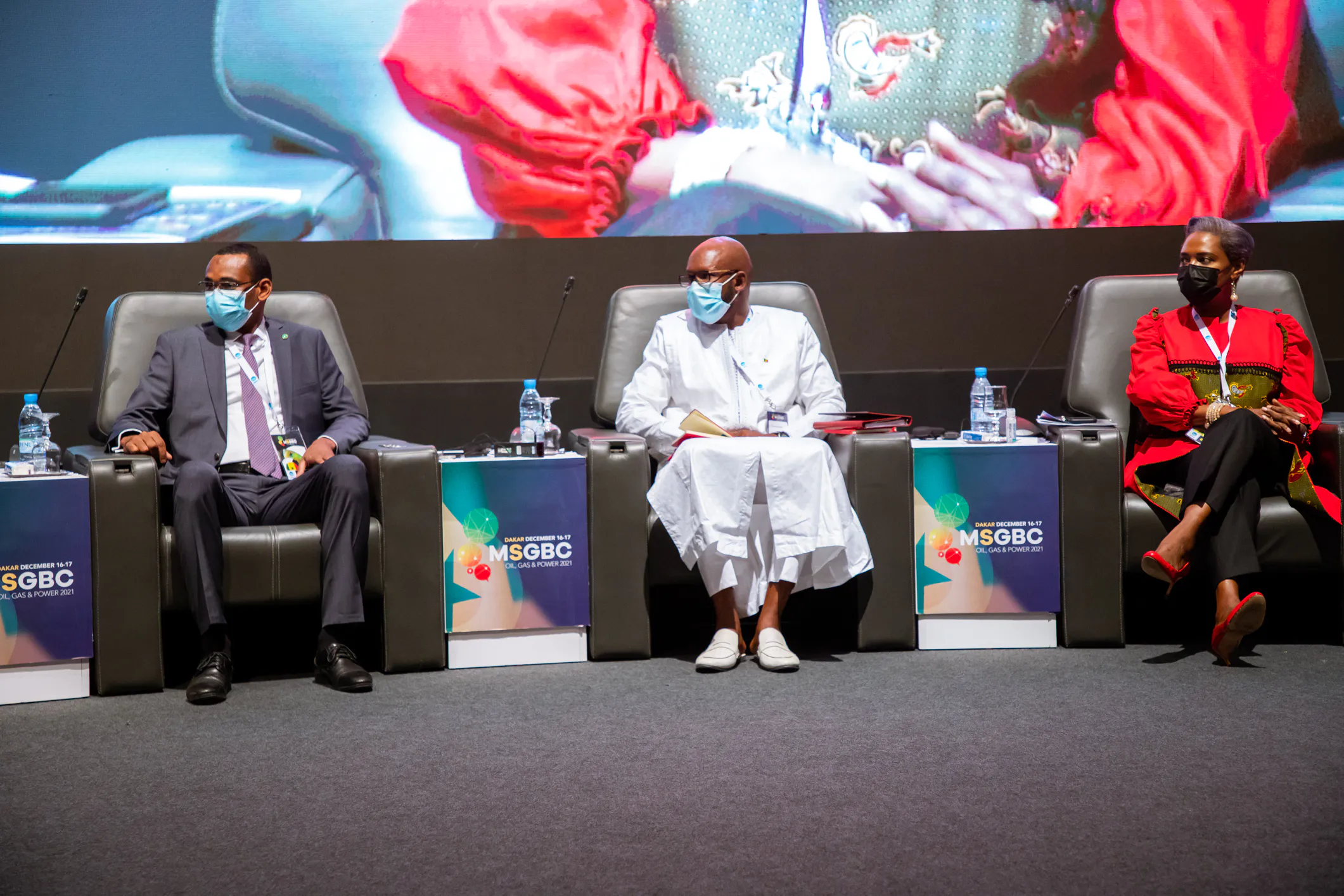
| The second day of the MSGBC Oil, Gas and Power 2021 Conference and Exhibition featured a panel discussion focusing on a project update on The Greater Tortue Ahmeyim LNG project, located on the maritime border offshore Senegal and Mauritania |
| DAKAR, Senegal, Day two of the MSGBC Oil, Gas and Power 2021 Conference and Exhibition featured a panel discussion on the BP-led Greater Tortue Ahmeyim (GTA) liquefied natural gas (LNG) project, offshore Senegal and Mauritania. Moderated by Serigne Mboup, Chairman, CEL Senegal SAS, the in-focus talks featured a panel comprising Massaer Cissé, Vice President and Country Director for BP Senegal; Moustapha Bechir, General Director of Hydrocarbons, Ministry of Petroleum, Energy and Mines, Mauritania; Thierno Seydou Ly Director of Hydrocarbon, Ministry of Petroleum and Energies, Senegal; Franck Pliya, Senegal Country Director and Vice President of Business Development in West and Central Africa at Technip Energies; and Khady D. Ndiaye, Vice President, Senegal Country Manager, Kosmos. Located in 2km-deep waters straddling the maritime border of Mauritania and Senegal, the GTA LNG project is being jointly developed by oil and gas supermajor, BP; American upstream oil company, Kosmos Energy; and Mauritania’s national oil company, Societé Mauritanienne des Hydrocarbures (SMHPM), with BP serving as operator. Comprising two natural gas reserves, the Tortue and Ahmeyim fields, and spread over an area of 33,000km2, the GTA gas field is estimated to contain approximately 15 trillion cubic feet of recoverable gas, and is expected to deliver up to 10 million tons of LNG per year (Mtpa) once completed for a total cost of $4.6 billion. “Natural gas has a key role to play in the energy transition as well as in the power generation ambitions of our country, particularly within our gas-to-power strategy,” stated Massaer Cisse VP, Head of Country Senegal, BP In February 2018, the Governments of Mauritania and Senegal signed an agreement to develop the cross-border GTA gas field, comprising the Tortue field, first discovered in the C-8 Block offshore Mauritania in 2015, owned by BP (62%), Kosmos Energy (28%), and SMHPM (10%), and the Ahmeyim field, located offshore Senegal in the Saint-Louis Offshore Profond Block, owned by BP (60%), Kosmos Energy (30%), and Senegalese national oil company, Petrosen (10%), demonstrating a unique example of regional cooperation, poising both countries to work toward capacity building, obtaining energy independence, and thus boosting socio-economic growth. “We can say today that GTA is a reality. Despite all challenges, including all posed by COVID-19, thanks to the work developed amongst all the partners, we can today say that the project is moving forward. Moreover, we today are happy that we hold natural gas and not oil, as it fits in the narrative of the energy transition that Senegal and the world are pursuing”, stated Khady D. Ndiaye, Vice President, Senegal Country Manager, Kosmos. Phase 1 of the development began in 2019 following a Final Investment Decision signed between the Mauritanian and Senegalese governments along with BP and Kosmos Energy. The GTA field will be developed with a deepwater subsea production system comprised of four gas production wells that will be tied back to a floating production, storage and offloading (FPSO) unit, from where processed gas will be sent to a near-shore floating LNG vessel, which will be capable of producing 2.5 Mtpa of LNG that will be used for global export as well as domestic consumption within Mauritania and Senegal. Actively working towards capacity building for its energy sector, Senegal has developed the Pilot Committee to Support Negotiations of Gas Projects and Institutional Capacity Building (PAN-PGRCI), an agency serving to facilitate contract negotiations and assist in legal matters. Meanwhile, completion of the GTA project will result in an anticipated $19 billion of additional revenue for the Government of Mauritania over the next three decades. “Both at the level of Senegal and from the side of Mauritania, everything is in place for the project to move ahead, and the necessary infrastructure is being developed to receive this gas. From each side, we have created dedicated agencies to ensure the optimal development of this project between the two nations,” said Moustapha Bechir, General Director of Hydrocarbons, Ministry of Petroleum, Energy and Mines, Mauritania. |
